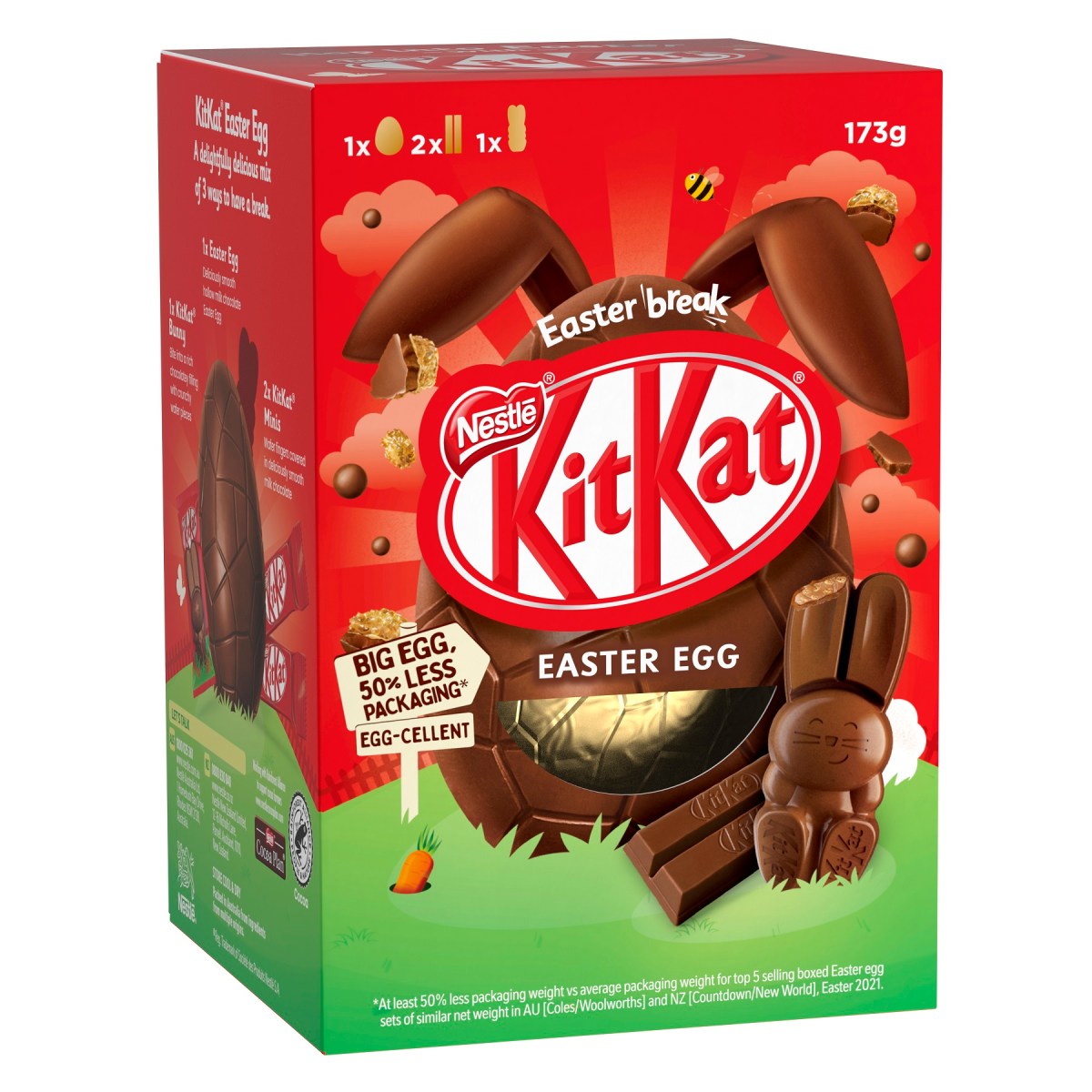Nestlé is delivering a new Easter range packed without hard plastics. KitKat, Allen’s lollies and Milkybar Easter boxes boast 50% less packaging weight compared to the average packaging weight of Australia’s five top-selling boxed Easter egg sets of similar net weight.
New research by Nestlé reveals that despite 90% of Australians noticing the amount of food packaging and half (54%) looking for less packaging this Easter, just 5% consider the amount of packaging waste as an important factor when purchasing Easter eggs.
While nearly half of respondents (49%) are drawn to the biggest Easter egg box, bigger packaging doesn’t always mean a bigger sized egg.
The new range eliminates the need for the traditional, rigid plastic used in many Easter egg boxes and is packed in a 100% recyclable box. Nestlé packaging also features the Australasian Recycling Label to help people know what bin to put it in.
“We want to break the mould that says a bigger pack means a bigger egg. Using less packaging meant carefully considering every detail so we could deliver our Easter eggs in a fully recyclable box,” Nestlé director of sustainability, Margaret Stuart said.
“Across Nestlé, we are working to make all or packaging recyclable or reusable and reduce our virgin plastic use by one-third by 2025, so getting the details right is critical. We need to be innovative. Easter, which sees a significant increase in chocolate gifting purchases, is a key time to shake up the category and start a conversation around packaging.”

